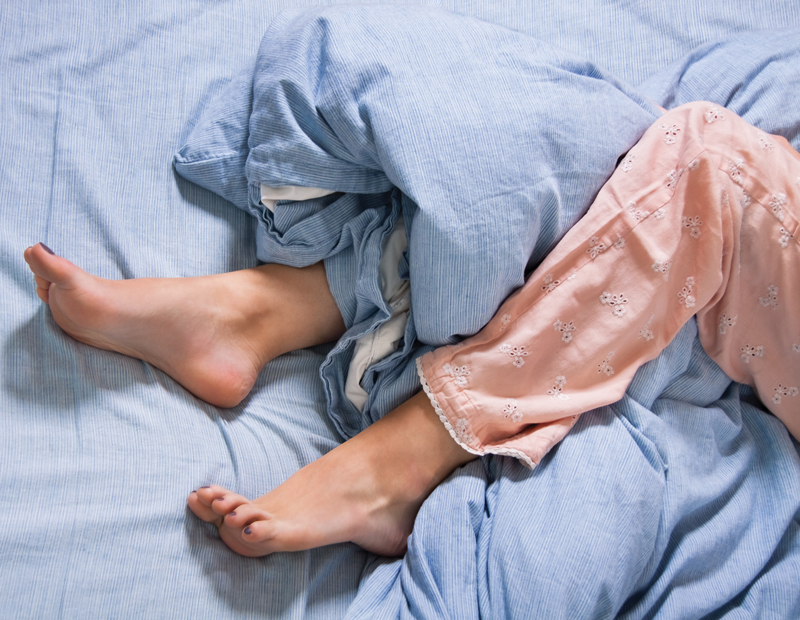What is Restless Leg Syndrome?
 The short answer to this question is: we’re not exactly sure. In fact, a single unifying cause of Restless Leg Syndrome (RLS) has yet to be established. What we do know is that there are many potential causes for RLS, including pregnancy, diabetes, and rheumatoid arthritis, not to mention medications such as antihistamines, anti-depressants, and a certain class of high blood pressure medicine.
The short answer to this question is: we’re not exactly sure. In fact, a single unifying cause of Restless Leg Syndrome (RLS) has yet to be established. What we do know is that there are many potential causes for RLS, including pregnancy, diabetes, and rheumatoid arthritis, not to mention medications such as antihistamines, anti-depressants, and a certain class of high blood pressure medicine.
RLS is considered a disruptive neurologic disorder, affecting approximately 10 percent of the U.S. population. It occurs in men and women, though the incidence is twice as high in women. RLS is not diagnosed through laboratory testing, but rather through evaluation of symptoms.
According to the International Restless Legs Syndrome Study Group, the four primary features of RLS are:
- An urge to move, usually due to uncomfortable sensations that occur primarily in the legs
- Motor restlessness (expressed as activity) that relieves the urge to move
- Worsening of symptoms by relaxation
- Variability over the course of the day-night cycle, with symptoms worse in the evening and early in the night
About 40 percent of people with RLS have problems with their veins— although we don’t yet fully understand the relationship between RLS and venous disease. Research shows that there is high correlation of patients who see their RLS resolve when they receive venous treatment.
One study showed that treatment of venous reflux eliminated or significantly reduced 98 percent of a person’s RLS symptoms. (Ninety-two percent of symptoms did not return after one year.) Another study showed that 95 percent of an individual’s restless legs symptoms were reduced, and 53 percent of symptoms were completely eliminated after vein treatment. Despite this and other research, there are currently no prospective random clinical trials that show that RLS is directly related to veins.
It is worth adding that many phlebologists (vein specialists) have found that when patients wear graduated compression stockings, their RLS symptoms improve.
There is no cure for RLS, but many treatment options are available to help manage symptoms, including long-term use of prescription medication. An article in the medical journal Phlebology concludes that all RLS patients should be properly evaluated for venous reflux before initiation or continuation of drug therapy.
Research findings and anecdotal evidence suggest that patients who are evaluated for restless legs syndrome would benefit from an evaluation for possible vein disease as well. Some patients in my care have expressed that treatment for venous insufficiency has made no difference at all, while other patients found completely relief from their RLS.
Dr. Cindy Asbjornsen is the founder of the Vein Healthcare Center in South Portland, Maine. Certified by the American Board of Venous and Lymphatic Medicine, she cares for all levels of venous disease, including spider veins, varicose veins and venous ulcers. She is the only vein specialist in Maine to be named a Fellow by the American College of Phlebology. You can contact Dr. Asbjornsen at 207-221-7799 or: [email protected].




